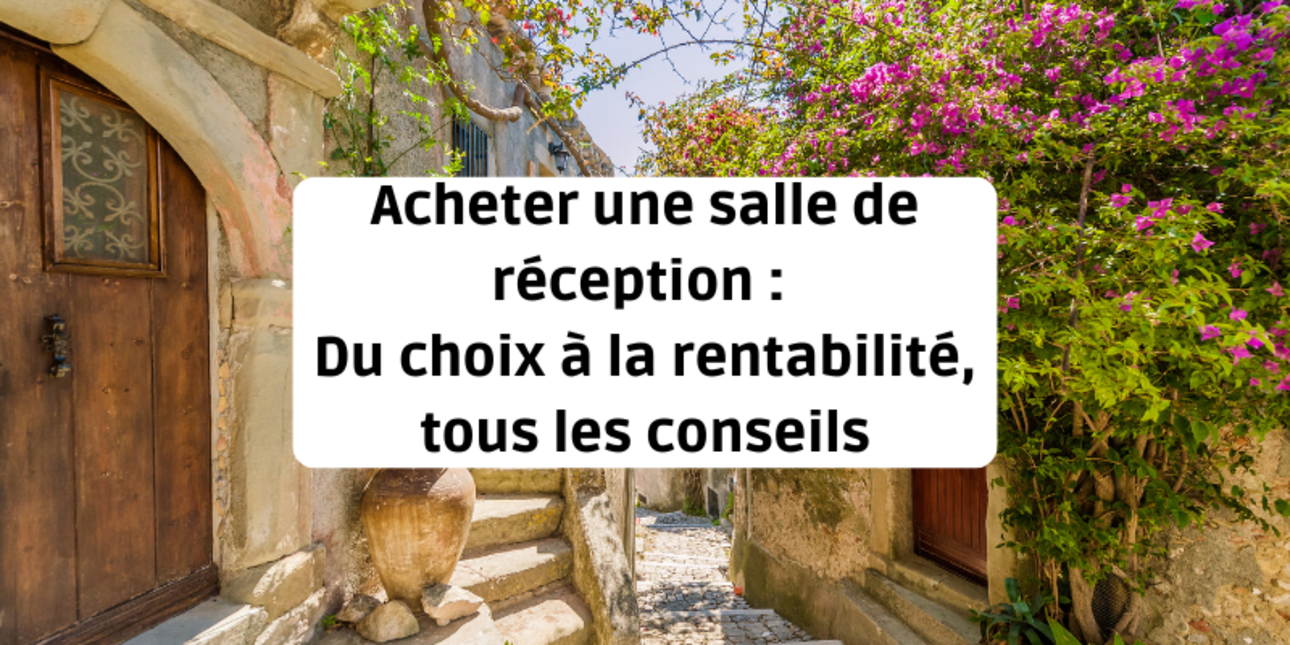
Buy a reception room is a major investment that requires careful thought, particularly when it comes to the type of event to be hosted. Opting for private events, business events or both is an essential choice, which has a direct impact on the management and profitability of the venue. In this article we look at the different options available, the types of property suitable and the regulatory requirements, while highlighting management strategies to maximise the profitability of the property.
Choosing between developing private events, professional events or both in a function room is an important decision, given the different types of requests and the specific needs of each category of customer. 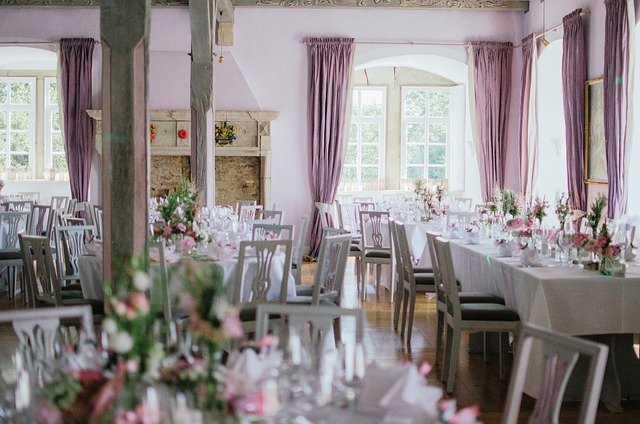
For private clients, events such as weddings, birthdays, celebrations with friends or family are special occasions that require a quality venue suitable for receiving groups ranging from a few dozen to several hundred people. Demand is generally concentrated at weekends and during the holidays, particularly during the summer period.
On the other hand, companies, whether in the public or private sector, are also looking for properties for professional events such as business meetings, conferences or seminars. Their needs also fluctuate according to the size of their group, which can range from a few individuals to several hundred participants. Unlike private individuals, their demand is generally concentrated during the week and outside school holiday periods.
Planning to operate a function room for both types of tenant can be a lucrative strategy, providing a complementary business that optimises the use of space, time and facilities, while keeping costs under control. This requires flexible and efficient management to meet the varied needs of both private and business customers. Despite these challenges, this approach can represent a profitable opportunity for function hire companies.
When it comes to establishing a venue focused on hosting and entertaining events, choosing the right type of property is important. We'll look at different types of property to consider, each offering its own benefits and challenges for creating memorable experiences for your guests.
Restaurant rooms are pre-fitted spaces, often including furniture, ideal for hosting events such as receptions. Their pre-existing ambience creates a warm and friendly atmosphere, perfect for festive gatherings. Their versatility and flexibility make them ideal for private receptions, business meetings or any other special occasion. Often with the option of turnkey services, such as catering, they simplify the organisation of events. However, their acquisition can involve high initial costs and require renovation work to meet specific needs.
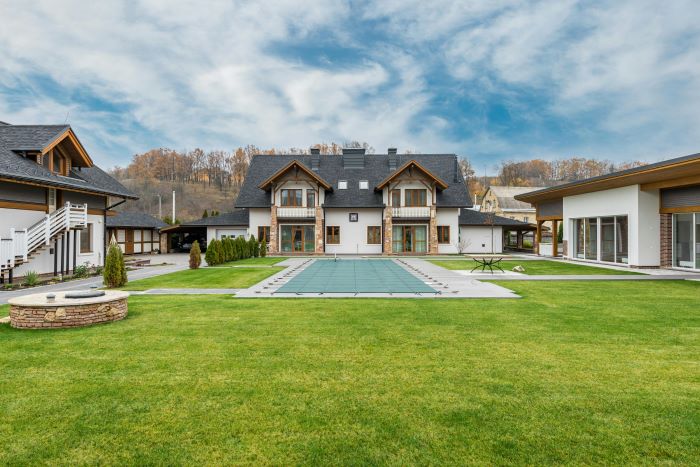 The gîtes offer a well-established rural setting in characterful residences, conducive to tranquillity and local charm. They are ideal for intimate events and can also provide convenient accommodation for celebrations spread over several days. However, investing in a gîte can represent a significant financial outlay and will require careful management to ensure a memorable experience for every visitor. There will also need to be space to bring all the guests together: a common room for meals, group activities, or other social events, to encourage exchanges and strengthen community ties.
The gîtes offer a well-established rural setting in characterful residences, conducive to tranquillity and local charm. They are ideal for intimate events and can also provide convenient accommodation for celebrations spread over several days. However, investing in a gîte can represent a significant financial outlay and will require careful management to ensure a memorable experience for every visitor. There will also need to be space to bring all the guests together: a common room for meals, group activities, or other social events, to encourage exchanges and strengthen community ties.
Buying a hotel offers many advantages, including access to a full range of integrated facilities. In addition to accommodation and catering services, hotels often offer a variety of leisure facilities, such as spas, swimming pools and fitness centres, providing a complete experience for your guests. Their variety of rooms and additional services, such as on-site catering and audiovisual equipment, make them a versatile and practical solution for any type of event. However, it is essential to note that acquiring a hotel can require a large financial investment as well as rigorous management to ensure the ongoing success of the business.
The castles, symbols of luxury and prestige, are distinguished by their majestic setting and impressive architecture, offering vast indoor and outdoor spaces and top-of-the-range facilities. Their atmosphere steeped in history and prestige makes them the preferred choice for unique luxury events, such as themed weddings,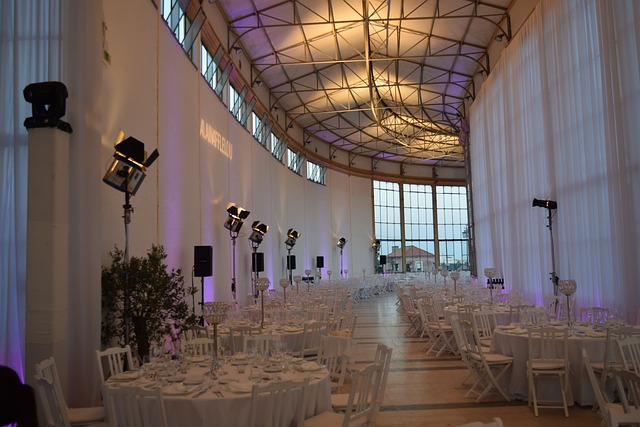 cocktail parties, official receptions and lavish celebrations. What's more, these venues can often offer comprehensive services including catering, accommodation and even exclusive leisure activities such as guided tours, wine tasting or sporting activities. In this way, châteaux offer an all-in-one opportunity and experience for memorable and prestigious events in an enchanting and historic setting.
cocktail parties, official receptions and lavish celebrations. What's more, these venues can often offer comprehensive services including catering, accommodation and even exclusive leisure activities such as guided tours, wine tasting or sporting activities. In this way, châteaux offer an all-in-one opportunity and experience for memorable and prestigious events in an enchanting and historic setting.
Witnesses to French history and charm, the manor houses are distinguished by their authentic character and sophisticated elegance. These prestigious residences are perfectly suited to events of the highest standing, offering an atmosphere of prestige and grandeur that is unique in terms of capacity. However, due to their high price and exclusive nature, access to these exceptional venues may be restricted for some.
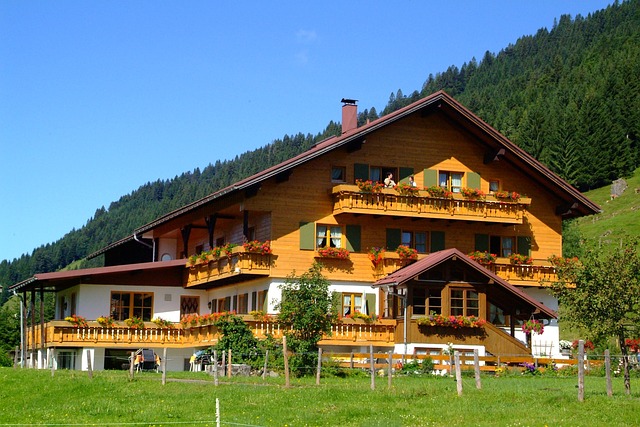 Offering simple, affordable temporary accommodation, the hostels are available in a variety of structures, from family establishments to commercial complexes. Their charm lies in their friendly ambience and warm atmosphere, providing the ideal setting for relaxed or rustic events. Often appreciated for their welcoming service, they can be meeting places for intimate receptions, family celebrations, couples' get-togethers or get-togethers with friends. However, they can be limited in terms of facilities and are not always suitable for all types of events or specific requirements.
Offering simple, affordable temporary accommodation, the hostels are available in a variety of structures, from family establishments to commercial complexes. Their charm lies in their friendly ambience and warm atmosphere, providing the ideal setting for relaxed or rustic events. Often appreciated for their welcoming service, they can be meeting places for intimate receptions, family celebrations, couples' get-togethers or get-togethers with friends. However, they can be limited in terms of facilities and are not always suitable for all types of events or specific requirements.
Designed specifically to host receptions and themed festive events, village halls provide affordable spaces for a variety of occasions. Often offered at preferential prices, particularly for local residents, they can be an attractive option for events on a limited budget or community gatherings. Usually strategically located, these halls guarantee convenient accessibility for participants. However, they may have shortcomings in terms of equipment and services, which could make them less suitable for certain types of event.
Building or converting a function room requires a number of administrative formalities. First of all, you need to apply to the town hall for planning permission or permission to carry out the work. In addition, a request for authorisation to open to the public must be submitted to the town hall at least one month before the planned opening date.
Once the work has been completed, the safety and accessibility commission checks that the establishment complies with the regulatory standards for Establishments Receiving the Public (ERP) in terms of safety and accessibility. These establishments are classified according to their activity and capacity, which determines the rules to be complied with in terms of safety. In other words, their classification in categories from 1 to 5 determines the number of people they can accommodate, while their type, which varies between hotels, châteaux, inns, village halls, gîtes, restaurant halls, manor houses, etc., influences the letter assigned to the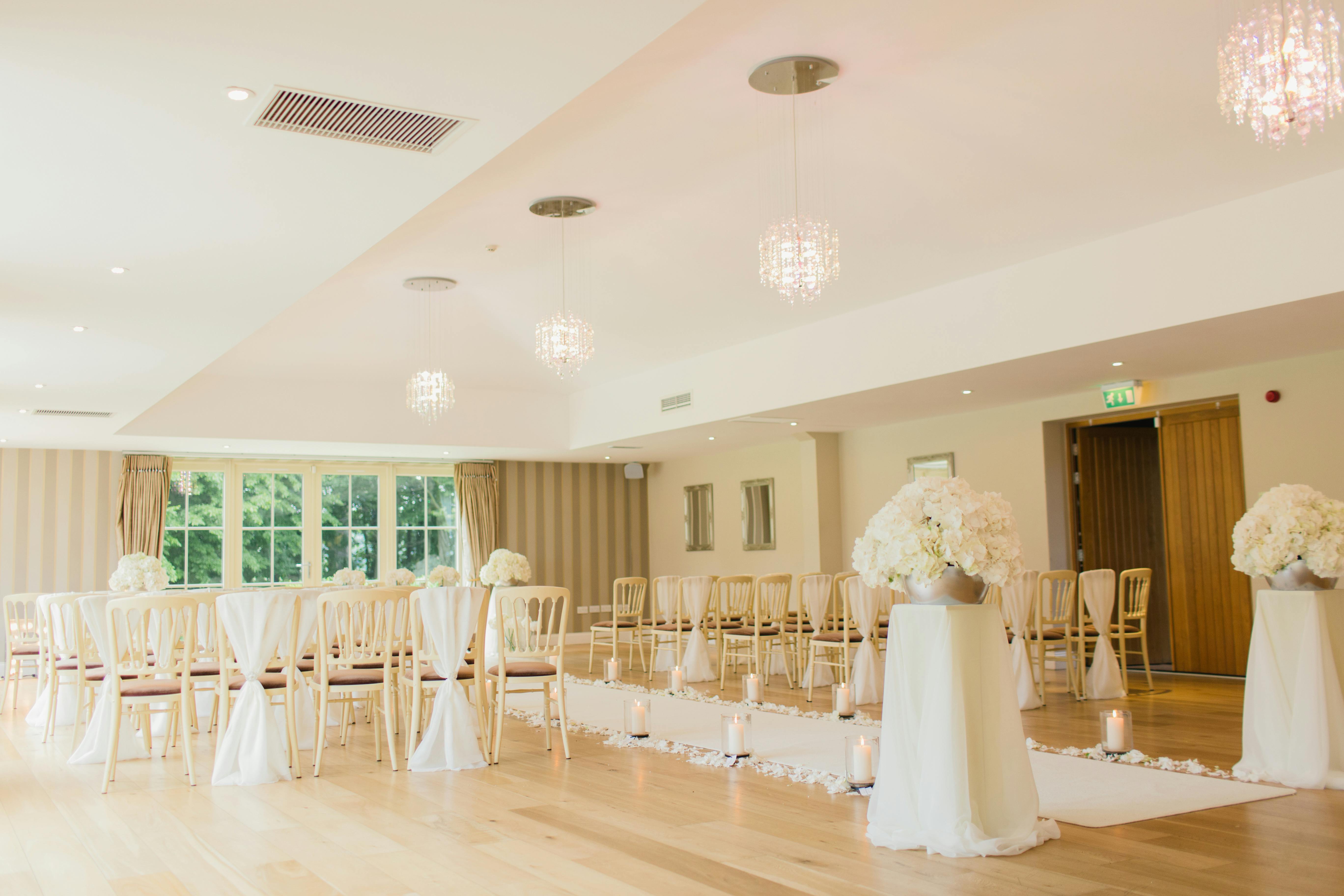 ERP.
ERP.
Reception halls are considered to be ERP and must therefore comply with current regulations. An application for authorisation must be submitted to the town hall 30 days before the hall opens, or after it has been closed for more than 10 months. A special committee examines compliance with the rules and issues an opinion. ERP classification affects the fire and safety standards applicable.
To obtain authorisation to let, it is crucial to comply with safety standards, in particular by installing emergency exits, fire extinguishers and equipment to facilitate access for disabled people, such as access ramps and reserved parking. A positive response from the town hall will depend on compliance with these standards.
In any case, a kitchen that meets professional standards is essential for your group hospitality business, whether it complements that of an existing restaurant or is an annex to your residence. The kitchen must comply with current hygiene, food safety and fire safety standards.
In France, there are no specific regulations governing the legal status of venue hire. Similarly, there are no prerequisites in terms of qualifications for operators. Operators are free to choose from a range of different business statuses, such as auto-entrepreneur or setting up a company (SASU, SARL, etc.) to launch their business. In addition, if the operator plans to carry out building work, he may opt to set up a company to simplify the management of his activities.
Running a function room requires rigorous day-to-day management. As the owner, it's essential to keep a close eye on bookings and occupancy rates. Using the right monitoring software can help you to keep your venue efficiently managed. It's essential to be reactive when potential customers contact you, quickly providing them with all the information they need about availability and booking arrangements.
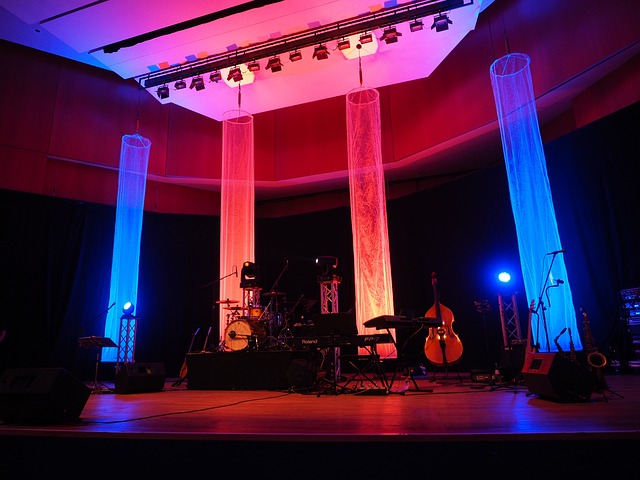 Establishing strong professional networks, by working with events specialists for example, can help to attract more customers.
Establishing strong professional networks, by working with events specialists for example, can help to attract more customers.
It is crucial to offer a range of high-quality complementary services to meet the varied needs of customers, whether in terms of catering, service, audiovisual equipment or decoration. It is also important to work with various service providers such as entertainers, musicians, decorators and photographers to offer your customers a complete service.
Finally, an active presence on social media platforms can help to promote the venue and attract new customers. Regularly publishing attractive and relevant content can pique the interest of potential customers and encourage them to book your venue for their events.
To ensure the profitability of a function room, diversifying its offer and highlighting the services on offer are key aspects. Flexible pricing, complete packages including the hire of the hall and additional services, and the development of partnerships with local service providers can help to attract a varied clientele. In addition, a well thought-out digital marketing strategy, with an active presence on social networks, a compelling website and targeted advertising campaigns, can play a crucial role in communication, which can help to raise the profile of the local venue and attract more new customers. Finally, organising events on a regular basis, continually improving the services on offer and diversifying the types of events can provide long-term profitability for the venue.
In conclusion, investing in a large function room offers lucrative potential, provided you make informed decisions throughout the process. Whether you opt for private events, business events or both, each choice requires a specific approach in terms of management and business strategy. By complying with regulatory standards, proposing an attractive offer and implementing effective management, reception hall owners can turn their investment into a prosperous and profitable business over the long term.